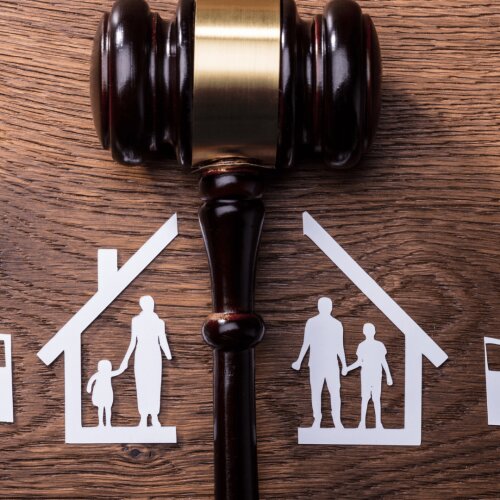Best Landlord & Tenant Lawyers in Brasília
Share your needs with us, get contacted by law firms.
Free. Takes 2 min.
Free Guide to Hiring a Real Estate Lawyer
List of the best lawyers in Brasília, Brazil
About Landlord & Tenant Law in Brasília, Brazil
Landlord and tenant law in Brasília, Brazil, is primarily governed by the Lei do Inquilinato (Tenancy Law), which is a federal law applicable across the country. The law regulates the leasing of urban properties, mediating the relationship between landlords (proprietários) and tenants (inquilinos), and outlining rights and responsibilities for both parties. While most rules are set at the federal level, local regulations and practices in Brasília may impact tenant protections, rent values, and legal proceedings. The tenant and landlord relationship is legally binding as soon as a lease agreement (contrato de locação) is signed, whether written or verbal, although written agreements are always recommended.
Why You May Need a Lawyer
Many situations can arise in the context of renting property in Brasília where legal advice becomes necessary. Common scenarios include:
- Disputes over rent increases or unpaid rent
- Eviction notices and legal eviction proceedings
- Conflicts regarding security deposits and their return
- Disagreements about property conditions or repairs
- Issues with lease renewals, extensions, or early termination
- Questions about subletting or transferring lease agreements
- Lack of a formal lease contract or unclear contract terms
- Need for representation in court or mediation with the other party
A lawyer experienced in landlord and tenant matters can provide clarity on your rights, draft or review contracts, represent you in negotiations or court, and help you avoid costly mistakes.
Local Laws Overview
In Brasília, landlord and tenant relationships are shaped by national tenancy law, but some local nuances and judiciary practices may influence how disputes are resolved. Key aspects to consider include:
- Rental Agreements: Both written and oral contracts are recognized, but written contracts are highly advisable for legal protection.
- Security Deposits: The law limits the security deposit to a maximum of three months' rent, and the deposit must be returned at the end of the lease, provided the property is in good condition.
- Eviction Process: Evictions must follow due legal process, and self-help evictions are prohibited. Legal action is required, except in rare situations.
- Rent Increases: Rent adjustments are generally allowed once a year, based on a mutually agreed index, commonly the IGP-M or IPCA, unless specified otherwise.
- Maintenance: Tenants must keep the property in good order and report significant issues. Landlords are responsible for major repairs and ensuring habitability.
- Notice Periods: Either party can terminate the lease at the end of its term, with proper notice (usually 30 days). Early termination by the tenant usually requires a penalty payment, unless contractual exceptions apply.
Judicial courts in Brasília, known as the Tribunal de Justiça do Distrito Federal e dos Territórios (TJDFT), handle landlord and tenant disputes if informal resolution is not possible.
Frequently Asked Questions
What are the main rights and responsibilities of tenants?
Tenants have the right to a safe, habitable property and the duty to pay rent on time, use the property responsibly, and notify the landlord of any necessary repairs.
How much security deposit can a landlord ask for?
The security deposit cannot exceed the equivalent of three months' rent.
Can rent be increased at any time?
No, rent can typically only be increased once every twelve months and must follow what is stipulated in the contract, usually referencing an official inflation index.
What happens if a tenant wants to leave before the contract ends?
Early termination by the tenant usually involves a penalty specified in the contract, but this penalty can sometimes be reduced or waived in case of job transfer by employer or mutual agreement.
Is written notice required for eviction?
Yes, landlords must provide proper written notice and follow the legal process through the courts; self-help eviction is not allowed.
Who is responsible for repairs and maintenance?
Landlords are responsible for major structural repairs, while tenants must handle day-to-day maintenance and minor repairs caused by misuse.
What can I do if my landlord refuses to return my deposit?
If disputes arise over the deposit, the matter can be settled in small claims court or through mediation. Legal advice is recommended.
Does the law protect tenants from being evicted without cause?
Yes, tenants cannot be evicted during the lease term without legal grounds. After the lease expires, 30 days written notice is usually required before eviction.
Can a landlord enter the rental property without permission?
Landlords must notify tenants and obtain consent before accessing the property, except in emergencies.
What recourse do I have if my landlord does not make necessary repairs?
Tenants can formally notify the landlord of needed repairs. If ignored, tenants may have the right to deposit rent in court or to request judicial intervention.
Additional Resources
If you need further information or support, the following resources can be helpful:
- Tribunal de Justiça do Distrito Federal e dos Territórios (TJDFT): Handles small claims and landlord-tenant disputes in Brasília.
- Procon-DF: Provides consumer rights support, including issues related to property rentals.
- OAB-DF (Ordem dos Advogados do Brasil - Seccional do Distrito Federal): Offers lawyer directories and legal services information.
- Defensoria Pública do Distrito Federal: Assists those with limited financial resources in accessing legal support.
- Sindicatos de Inquilinos: Tenant unions can offer advice and advocacy for renters' rights.
Next Steps
If you are facing a landlord and tenant issue in Brasília, consider these steps:
- Gather all relevant documents, such as lease agreements, payment receipts, and written correspondence with the other party.
- Identify the specific issues and desired outcomes before seeking legal advice.
- Consult with a local lawyer specializing in landlord and tenant law for personalized guidance.
- If eligible, reach out to local public defender offices or tenant advocacy organizations.
- Attempt a direct, amicable resolution with the other party if safe and appropriate, but do not forgo your legal rights.
- If necessary, submit a formal complaint to the appropriate governmental body or initiate legal proceedings in the TJDFT.
Seeking early legal advice can help prevent escalation and protect your rights, ensuring a smoother resolution for landlord and tenant issues in Brasília.
Lawzana helps you find the best lawyers and law firms in Brasília through a curated and pre-screened list of qualified legal professionals. Our platform offers rankings and detailed profiles of attorneys and law firms, allowing you to compare based on practice areas, including Landlord & Tenant, experience, and client feedback.
Each profile includes a description of the firm's areas of practice, client reviews, team members and partners, year of establishment, spoken languages, office locations, contact information, social media presence, and any published articles or resources. Most firms on our platform speak English and are experienced in both local and international legal matters.
Get a quote from top-rated law firms in Brasília, Brazil — quickly, securely, and without unnecessary hassle.
Disclaimer:
The information provided on this page is for general informational purposes only and does not constitute legal advice. While we strive to ensure the accuracy and relevance of the content, legal information may change over time, and interpretations of the law can vary. You should always consult with a qualified legal professional for advice specific to your situation.
We disclaim all liability for actions taken or not taken based on the content of this page. If you believe any information is incorrect or outdated, please contact us, and we will review and update it where appropriate.










